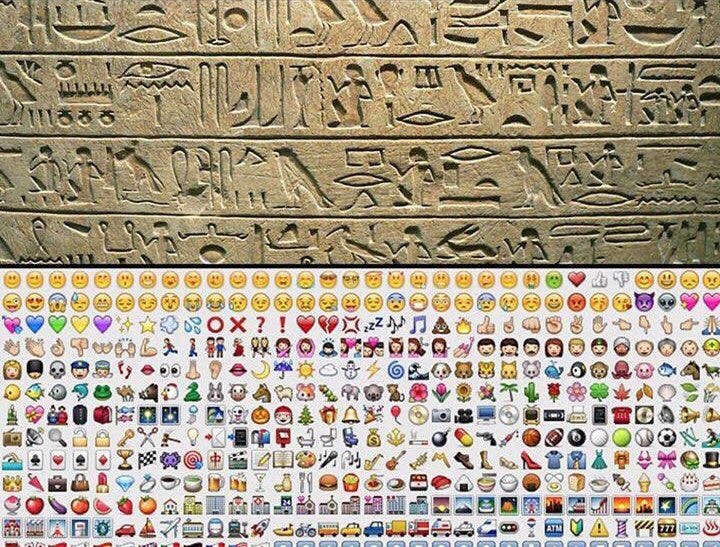The Long Game 59: The Health Challenges of Spaceflights, Startup Mental Health, Inner Circle
🛸 Fermi Paradox, UFOs, Comfort, Emojis, Tribe, Belonging, One-Child Policy, Bad Apple, Exploding Topics, and Much More!
Hi there, it’s Mehdi Yacoubi, co-founder at Vital, and this is The Long Game Newsletter. To receive it in your inbox each week, subscribe here:
In this episode, we explore:
The health challenges of Spaceflights
Inner circle
Comfort makes us weak
Startup mental health
Tribe: On Homecoming and Belonging
UFO Report
Let’s dive in!
🥑 Health
👨🚀 The Health Challenges of Spaceflights
I’m getting increasingly interested in space exploration. I think we’re going to witness a fantastic Space Race during this century. This week I read a few things about the challenges of spaceflights, and I understood that on top of the engineering challenges related to getting from one point the other, the health challenges for astronauts are real. If we want to explore the cosmos (with humans), we’ll need to find a way to travel through space without damaging human health.
I found this article from NASA explains well the situation and the five risks the human body faces:
What exactly happens to the body in space and what are the risks? Are the risks the same for astronauts who spend six months on the space station versus those who may be away on a Mars mission for years? The simple answer is “no.” NASA is researching risks for Mars missions which are grouped into five human spaceflight hazards related to the stressors they place on the body. These can be summarized with the acronym “RIDGE,” short for Space Radiation, Isolation and Confinement, Distancefrom Earth, Gravityfields, and Hostile/Closed Environments.
Radiation
“The current strategy to reduce the health risks of space radiation exposure is to implement shielding, radiation monitoring, and specific operational procedures.”
Isolation and Confinement
“New lighting, spurred by the development of Light-Emitting Diode (LED) technology, is used on the space station to help align astronaut’s circadian rhythms and to improve sleep, alertness, and performance. A 10-minute self-test of vigilance and attention assesses the effect of fatigue on performance. Astronauts write in journals as a safe place to vent frustrations and provide researchers a tool to study behavioral issues that are on the minds of crew members who are living and working in isolation and confinement. Researchers are also looking into using virtual reality to simulate relaxing environments to help improve the mood of crews in isolation.”
Distance from Earth
“NASA is using its human spaceflight experience on the space station to figure out what types of medical events happen in space over time and what types of skills, procedures, equipment, and supplies are needed so that they will have a good idea of what to pack for future missions to the Moon and Mars.”
Gravity Fields
“By analyzing how the body changes in weightlessness and after returning to Earth’s gravity, NASA is developing protective measures against these changes for a Mars mission.”
Hostile/Closed Environments
“NASA is using technology to monitor the air quality of the space station to ensure the atmosphere is safe to breathe and not contaminated with gases, such as formaldehyde, ammonia, and carbon monoxide.”
🌱 Wellness
⭕ Inner Circle
We live in a ‘bigger is better’ era. This might not be working for all areas of your life. Especially for your inner circle. This great article by Scott Gerber makes a case for a purposefully small inner circle.
As you shrink your inner circle, you’ll begin thinking of yourself as the architect of your environment. As you forge deeper, more authentic relationships with smaller numbers of people who are genuinely important to you, you will gain more context into their wants and needs, and they will likewise develop a fuller understanding of you. That will give you a stronger foundation on which to build a larger community that benefits from knowing you and your inner circle. You may never have a supersized network, but you’ll be well on your way to being a superconnector.
🧠 Better Thinking
👻 Comfort Makes us Soft
We should be wary of the unintended consequences of the technology we are building. One thing that seems to only worsen by the years is our addiction to comfort and having it easy.

Thankfully, we have figures like David Goggins, Cameron Hanes, and others who are leading the way in showing that embracing discomfort is the best way to live your life and achieve your potential (even David Sinclair, more recently.)
⚡️ Startup Stuff
🛣 Startup Mental Health
This week’s edition of Suma Positiva was so good and important that I had to share it here. It’s about the common mental health-related mistakes and problems founders usually make and encounter.
When it comes to health and mental health, I’m always for prevention. You’d better think about your mental health when things are going well to make sure things stay as good as possible for the long game.
The part I found most interesting is about vulnerability. On social media, and in life in general, people think that showing vulnerability makes you weak. It’s actually the opposite. Vulnerability is a strength.
I’m sure you’ll enjoy a little bit of Spanish for this Sunday 🇪🇸
4. Invulnerabilidad
Pensamos que para tener éxito no podemos o no debemos mostrar vulnerabilidad, dudas o debilidad delante de nuestro entorno. Debemos aparentar ese control de la situación para que el resto de implicados no se bajen del barco y sigan apostando por el proyecto. Pensamos que si descubren que tenemos dudas, los inversores no van a ir a la siguiente ronda y mis empleados clave dejarán la compañía. Esta necesidad de presentar una imagen invulnerable puede acabar en un síndrome del impostor. En estos escenarios algunos emprendedores pueden sentir que están asumiendo un rol que ni siquiera ellos creen. Se genera una gran disonancia entre lo que piensan que son y lo que representan ser en el día a día. Cuando esta disonancia se alarga en el tiempo se puede hacer insoportable y acabar en crisis personal.
I recommend this great complimentary read from James Beshara: Mental Health is Wealth. Here’s the TL;DR:
• When it comes to mental health, our society approaches it like we did with physical health 50 years ago. We only think about it when something goes wrong.
• To the wider public, mental health is synonymous with mental illness. Our notion of physical health is, however, very different than our notion of physical illness.
• We might benefit from approaching mental health like we invest in anything else in our lives (finances, relationships, careers, physical health, etc), where one builds wealth in this area by continuous, conscious investment.
• Estimates say that 83% of us will be hit with a mental health crisis in our lives, we can all make the choices to invest wisely in this area to improve our ‘mental durability’ to deal with it properly.
• In my 19 years of paying close attention to mental health, my experience has taught me that there are five foundations towards a concept I will call ‘mental wealth’ — sleep, diet, exercise, stress management, and exogenous compounds (anything from coffee to alcohol to prescription medication).
• There are simple tips one can adopt for these five areas to invest in one’s mental wealth.

📚 What I Read
👥 Tribe: On Homecoming and Belonging
I started Tribe: On Homecoming and Belonging by Sebastian Junger recently, and I really like the book. It explores the problems that were raised when our societies became more individualistic. At the beginning of the book, the author explains that during the conquest of the United States by the English, many settlers seemed to prefer the Indian society to their own. I found this part fascinating:
The reluctance of Bouquet’s captives to leave their adopted tribe raised awkward questions about the supposed superiority of Western society. It was understood why young children would not want to return to their original families, and it made sense that renegades like the infamous Simon Girty would later seek refuge with the Indians and even fight alongside them. But as Benjamin Franklin pointed out, there were numerous settlers who were captured as adults and still seemed to prefer Indian society to their own. And what about people who voluntarily joined the Indians?
Here are a few more quotes from the book to give you an idea:
“Humans don’t mind hardship, in fact they thrive on it; what they mind is not feeling necessary. Modern society has perfected the art of making people not feel necessary. It's time for that to end.”
“human beings need three basic things in order to be content: they need to feel competent at what they do; they need to feel authentic in their lives; and they need to feel connected to others. These values are considered "intrinsic" to human happiness and far outweigh "extrinsic" values such as beauty, money and status.”
🍎 Bad Apple
An excellent piece by Antonio García Martínez on his recent “cancellation” by Apple:
Silicon Valley once served as the last refuge of renegades and dropouts, wild-eyed prophets and daring pioneers, the sort of place that would take someone like Steve Jobs in. Nowadays, he and people like him wouldn’t last a day inside the companies they created. On the flip side, if the hard-charging figures that created these companies were still around—people like Andy Grove, who titled his memoir “Only The Paranoid Survive”—one imagines they’d have very little patience for the petitioners. As with so many things in American life, senior management is shambling feebly around the frayed institutions that greater and past generations built. If there’s any subversion (or principles) left in Silicon Valley, it’s thanks to startups whose founders possess both the nerve and social capital to take a stand about why their companies exist.
👽 Government Report Can't Explain UFOs but Offers no Evidence of Aliens
A summary of the recent UFO report to Congress. I still find it unbelievable that so many people take this with contempt and ridicule. We have sightings of objects that the US military can’t understand. Whether it’s from an alien civilization or not is beyond the point. Understanding what’s happening should be a top priority.


No matter what we assume it is, the story should be groundbreaking.

Mike Solana has a great piece about the impossibility of some people to accept reality.
When faced with an unacceptable question about the world a feeling hits you in the gut and twists — turn back, do not look at this. It’s an intellectual gag reflex. It’s fight or flight, but for ideas, and we just aren’t built to battle the big stuff. Most perniciously, following deflection the block wipes your memory of ever having stumbled so closely — so dangerously — to a reconception of the world. The experience of nearly thinking for oneself is, it seems, almost traumatic. Let us here refer to this curiosity killer as your “barrier belief.”
It’s a sense of truth we have about the world comprised of what we’ve previously seen, experienced, and learned from people we trust. New knowledge is added to the barrier in increments, and while we change our opinions all the time, anything sufficiently distant from our core sense of the world is instinctively, and almost immediately abandoned. This isn’t necessarily because wild new information about the nature of our reality is untrue, though it often is, but because “wild” new information tends to challenge in some fundamental way our core beliefs, and reconception of core beliefs is exhausting. So, while the particular character and intensity of any given barrier belief is mostly personal, its purpose, in all of us, is universal: it exists to stop us from thinking.
🎙 Podcast Episodes of the Week
This week I finished the excellent Kings of Kings series from Hardcore History. It’s very long but really worth it. I will continue down the history path with the Supernova in the East series next week. Here’s another more timely episode I recommend:
Rob Reid: The Existential Threat of Engineered Viruses and Lab Leaks
It covers existential risks at large, and particularly the risk from viruses in the coming decades. Rob Reid makes a compelling case against gain-of-function research.
🍭 Brain Food
🧬♾ The Evolving, Unexpected Power of the Emoji
Marshall McLuhan coined the phrase “the medium is the message” to explain that a communication medium itself, not the messages it carries, should be the primary focus of study. He showed that the characteristics of media (not only the content) affect society.
Today, emojis might be changing the way we communicate and thus the way we think.
Riordan argues that emoji do what social scientists call “emotion work,” the hidden labor we do to maintain our relationships. If her mother sends her a text message that annoys her, she says, “I don’t want her to know how annoyed I really am, so I might send her a thumbs up. That drives forward relationship maintenance.” If they were to have the same interaction in person, Riordan might not be able to hide her feelings, she says, but emoji make that easier. Sending a thumbs up instead of a more explicit response leaves her mother to draw her own conclusions about Riordan’s meaning. “She’s going to assume I’m agreeing with her, even though I’m not and I never said I was.”
More importantly, every movement needs codes and symbols to rally around. Like the ideas described in The Metaphors We Live By, Balaji recently asked for the right emoji for life extension. Having a dedicated symbol could trigger more mainstream interest in the field and speed up the progress. While we’re waiting for this new emoji, the best alternative seems to be 🧬♾, or 👴➡️👨.


Danesi’s old teacher, Marshall McLuhan, once theorized when we changed from an oral culture to a writing culture, that led to a change in cognition and consciousness. To Danesi, emoji represent a similar step. “It’s not just a cute new way to embellish your writing,” he says. “We’re retrieving an old pictograph society”—one that can use an image of a flame to imply a whole constellation of changing language: that’s hot, that’s lit, that’s straight fire.
🎥 What I’m Watching
🛸 Unsettling Theories About Potential Aliens (& Solutions to The Fermi Paradox)
I can’t get enough of the Fermi Paradox. This video explains the potential reasons we think we’re alone in the Universe. I can’t help but think we would never understand an advanced civilization. Think of a tribe of prehistoric humans from 20,000 years ago trying to detect us and understand us from a different planet.
🇨🇳 The Chinese React to New 3-Child Policy
After decades of the disastrous one-child policy, the Chinese are now allowed to have three children (and will soon be allowed to have as many children as they want) as their government understood the looming demographic catastrophe waiting for them.
Watch some young Chinese citizens react to this. I find it quite depressing to see young people not interested in having kids anymore. I hope the West will not reach this point.
🔧 The Tool of the Week
📈 Exploding Topics
I’ve already mentioned Exploding Topics multiple times, but I think it’s worth checking this website regularly if you want to be aware of the latest trends. The concept is simple; it surfaces rapidly growing topics before they take off. I like to keep an eye on the “Health” and “Fitness” categories.
Some recent health trends are ultraviolet index, Sweetgreen, Dry Drinker, non-alcoholic drink, and more! It’s very aligned with the no/low-alcohol movement we mentioned two weeks ago.
🪐 Quote I'm Pondering
Two possibilities exist: either we are alone in the Universe or we are not. Both are equally terrifying.
If you enjoyed this newsletter, make sure to subscribe if you haven’t 👇
👋 EndNote
Thanks for reading!
If you like The Long Game, please share it on social media or forward this email to someone who might enjoy it. Podcast reviews are also gratefully received. You can also “like” this newsletter by clicking the heart just below this, which helps me get visibility on Substack.
Feel free to email me or find me on Twitter if you have any feedback or questions.
Until next week,
Mehdi Yacoubi
PS: Lots of newsletters get stuck in Gmail’s Promotions tab. If you find it in there, please help train the algorithm by dragging it to Primary. It makes a big difference.






